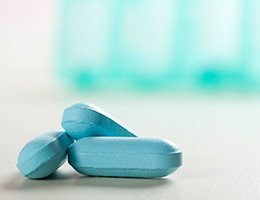
After a heart attack, you may be dealing with many thoughts and emotions. But no matter how overwhelmed you may feel, you need to be sure to take the medicines your doctor has prescribed.
Most people who have had heart attacks need to take several medications for the rest of their lives, according to the American Heart Association (AHA).
In combination with lifestyle changes, these medicines can greatly reduce your risk of having another heart attack.
Medicines often used after heart attacks include:
Aspirin to help keep arteries open and to prevent blood clots. It works by keeping blood platelets from sticking together. Some people who have heart attacks are prescribed aspirin plus a second drug that also prevents blood clots, according to the AHA.
ACE (angiotensin-converting enzyme) inhibitors to lower levels of a chemical that narrows blood vessels and allow blood to flow more easily. ACE inhibitors also help control high blood pressure and treat heart failure.
ARBs (angiotensin II receptor blockers) to block the effects of the chemical that causes blood vessels to narrow. ARBs are also used to help control high blood pressure and treat heart failure. ARBs may be prescribed if you can't take ACE inhibitors, according to the AHA.
Beta-blockers to help reduce chest pain, control blood pressure, prevent a second heart attack and treat abnormal heart rhythms.
Nitrates to relax blood vessels and ease chest pain.
Calcium channel blockers to relax blood vessels, control blood pressure and reduce chest pain.
Diuretics to control blood pressure and reduce swelling by decreasing the amount of fluid in the body and by helping to treat heart failure.
Digitalis preparations to increase the force of heartbeats and slow some types of irregular heart rhythms.
Statins to decrease the levels of low-density lipoproteins (LDL, or bad cholesterol) in the blood.
Work with your doctor
Your doctor will recommend doses and combinations of medicines based on exactly what you need. It's important to follow the directions for the medications closely.
If side effects bother you, talk to your doctor. A different dose, medicine or combination of medicines can often help.
And here's one more tip to take to heart: Be sure to tell all your doctors about all the medicines you take, even over-the-counter drugs and herbs and other supplements. It's important for your providers to have a complete picture of your medicines and your health.
Reviewed 10/14/2024